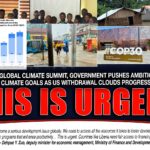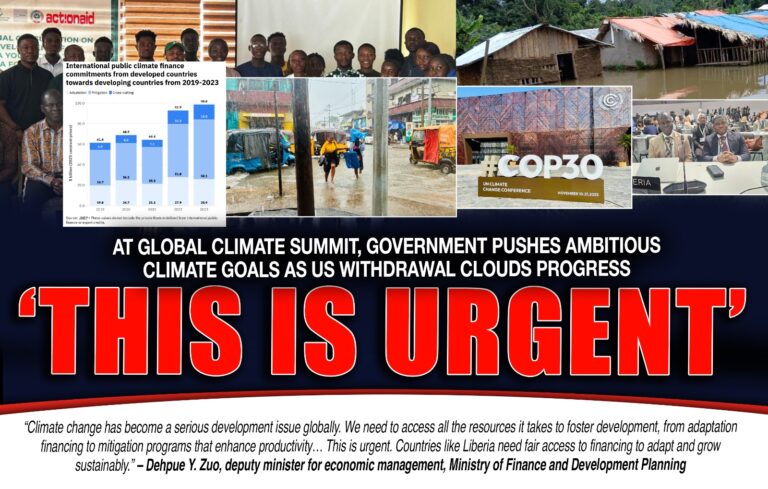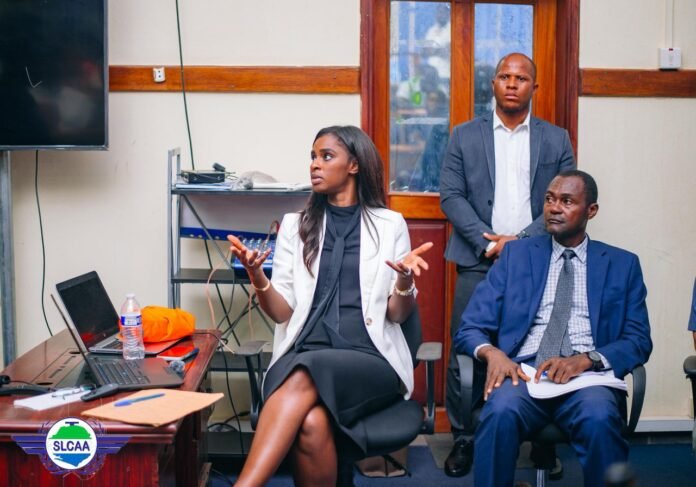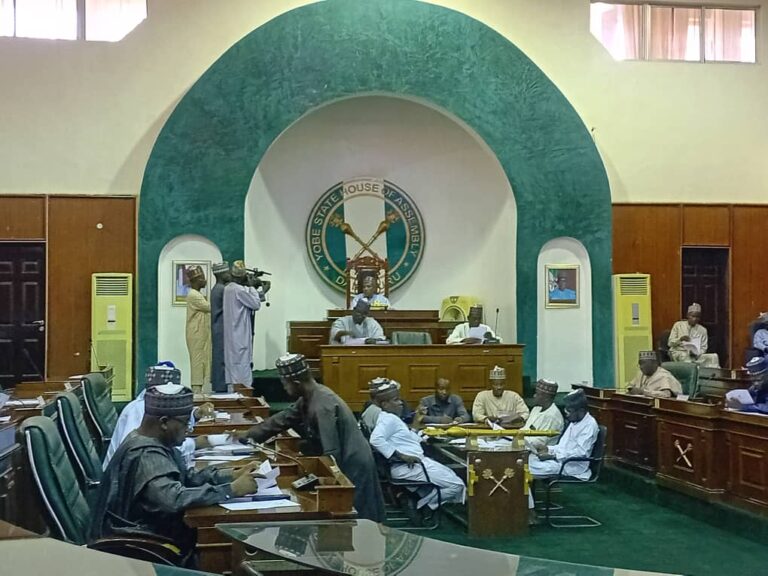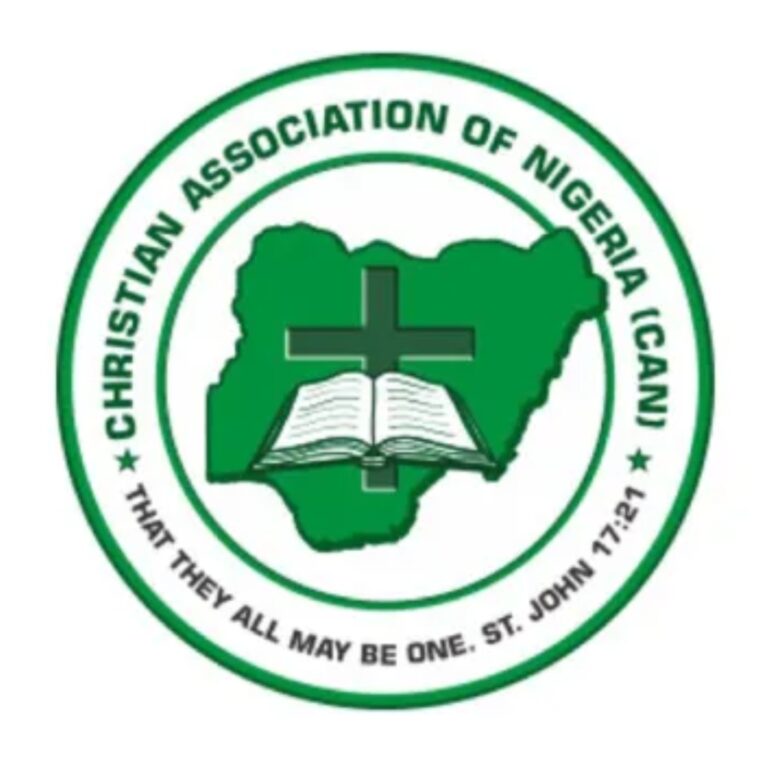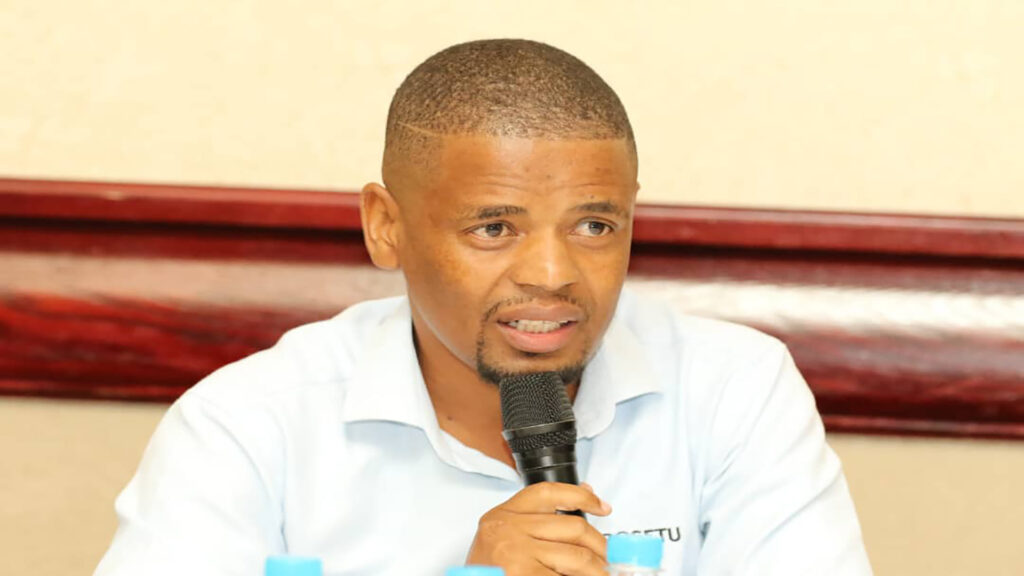
Teacher Union wants President Boko to act
The education sector in Botswana is teetering on the edge of a crisis, as teachers grow increasingly frustrated and disillusioned under the leadership of Minister Dr. Nono Kgafela Mokoka. For months now, members of the Botswana Sectors Educators Teachers’ Union (BOSETU) have voiced their concerns, accusing the minister of neglecting her core mandate to advance education, while seeming more enamored with broader social work initiatives. Their anxieties have been amplified by the apparent indifference of President Duma Boko, who many teachers feel has not taken these growing tensions seriously.
At the heart of the unrest is a deeply felt disconnect: teachers remain largely in the dark about Dr. Kgafela Mokoka’s education roadmap. Despite official meetings and consultations reportedly held by the minister to outline her policy direction, the messaging has failed to reach the classroom frontline in any meaningful way. Teachers argue that her focus has shifted disproportionally towards social welfare and child protection rather than addressing the immediate needs of schools, curriculum development, and teacher welfare. This sentiment was emphatically expressed by BOSETU’s publicity secretary, Oreeditse Nyatso, who noted that “teachers are unaware of her roadmap on education and she seems to be so infatuated with social work… not education”.
The minister’s title—Minister of Child Welfare and Basic Education—embodies the dual responsibility she carries, though the emphasis on child welfare programs such as social support services and vulnerable child protection has drawn mixed reactions. While some acknowledge the importance of holistic child wellbeing in education, many educators see a worrying divergence from urgent educational reforms, including curriculum modernization and addressing the ongoing teacher welfare challenges. Kgafela Mokoka’s advocacy for social interventions does not seem to resonate with teachers facing day-to-day hardships in overcrowded classrooms, limited resources, and an education system in flux.
One of the critical flashpoints for educators has been the ministry’s struggle with long-standing welfare issues that have remained unresolved. Payment delays, unclear policy communication, and a perceived lack of commitment to improving teacher conditions have created a profound sense of betrayal among teachers. According to recent reports, some educators have experienced significant delays in salary payments, and temporary teachers face uncertainty about contract renewals and benefits. This financial instability, combined with burgeoning administrative challenges, has fueled the growing unrest.
Further compounding the crisis is the mass exodus of competent administrators from the Ministry of Education headquarters. Sources within the civil service reveal that highly skilled and experienced officials are leaving in large numbers, citing low morale, unclear ministerial directives, and bureaucratic inertia. This attrition at the senior management level threatens to leave the ministry’s strategic operations rudderless at a critical juncture when education reform requires strong and decisive leadership. The vacuum in capable administration only deepens the already fraught atmosphere and diminishes the chances of cohesive policy implementation.
Historically, Botswana has prided itself on its education system’s relative stability and progress. Yet, current developments suggest cracks are widening. The crisis is palpable not only in public statements from BOSETU but also in the quiet resignation among educators who feel their voices are going unheard. The union’s call for decisive government intervention resonates with many teachers who warn of a looming collapse if urgent action is not taken. Nyatso’s stark assertion that teachers are “fed up” with Minister Kgafela Mokoka and that this discontent signals a “looming crisis” paints a grim picture of a system on the brink.
Looking at Dr. Kgafela Mokoka’s public communications, there have been some attempts to articulate a future vision, which includes upgrading diploma curricula to degree levels and embracing STEAM education to modernize learning across all levels. However, these objectives have not quelled the anxieties at the grassroots, as tangible improvements remain elusive. Educational stakeholders and civil society have called for greater transparency about these plans, alongside more inclusive consultations to repair the growing divide between policymakers and educators.
Adding to the disquiet is the perception that longstanding teacher welfare issues—ranging from inadequate salaries, absence of proper leave and vacation policies, and insufficient support for temporary educators—are sidelined. This neglect stands in stark contrast to the rhetoric of investment in education and teacher empowerment. Teachers face a difficult environment where their professional and economic needs feel secondary to the minister’s broader social agenda. The tension underscores a fundamental question about the prioritization in Botswana’s educational leadership: is child welfare overshadowing education, or can the two coexist effectively?
Analysts suggest that the minister’s focus on social work, while noble, reflects the complex overlap between education and social services in Botswana, where many children face socio-economic challenges that impact learning. School social workers play a vital role in supporting students grappling with issues outside the classroom, but educators argue this should complement—not replace—robust educational policy focused squarely on schools, teachers, and curriculum quality. The balance between these mandates is delicate, and many see the current approach as disproportionately weighted toward social welfare programs.
President Duma Boko’s role in this unfolding saga is viewed by many as passive. Despite BOSETU’s vocal concerns and the visible discontent spreading across the education sector, the president has not publicly intervened or signaled any pressure on the minister to recalibrate efforts. This perceived aloofness has compounded frustrations, intensifying speculation about the government’s commitment to fixing what many teachers consider an escalating crisis. Education, after all, is a cornerstone of Botswana’s development ambitions, and neglect at the highest levels could have far-reaching consequences.
The education challenge intersects with Botswana’s near-term strategic goals, as outlined in documents like the National Development Plan 12 (NDP12), which emphasizes fiscal prudence but also calls for social stability and investment in human capital. With education being a critical driver of human capital development, the escalating tensions point to a governance failure that could undermine these broader plans. If remedying teacher welfare and clarifying educational leadership remain unaddressed, Botswana risks a decline in instructional quality and a possible shortage of skilled educators as morale dips further.
To avert a full-blown educational crisis, experts recommend a multi-pronged approach. This includes immediate resolution of salary and welfare issues, transparent communication of the minister’s education roadmap, retention of experienced administrators, and a rebalancing of ministerial focus that equally values education and social welfare mandates. Meaningful engagement between the ministry, teachers’ unions, and community stakeholders will be crucial to rebuilding trust and crafting policies that reflect realities on the ground.
As Botswana stands at this crossroads, the educators’ message is crystal clear: they seek serious attention and tangible support, not platitudes. The future of the country’s youth and the strength of its education system depend on a leadership that listens and acts decisively. Without such a shift, the disquiet among the nation’s teachers could spiral into disruptions that no roadmap, social work focus, or ministerial title can resolve.
For now, the questions raised by BOSETU reverberate widely: Will President Boko step up to bridge the gap? Can Dr. Kgafela Mokoka realign her priorities to match the urgent needs of educators? Or will Botswana’s education sector continue to wrestle with leadership uncertainties that threaten its hard-earned gains? The answer remains to be written, but the warning signs are unmistakable.
Post Views: 502

